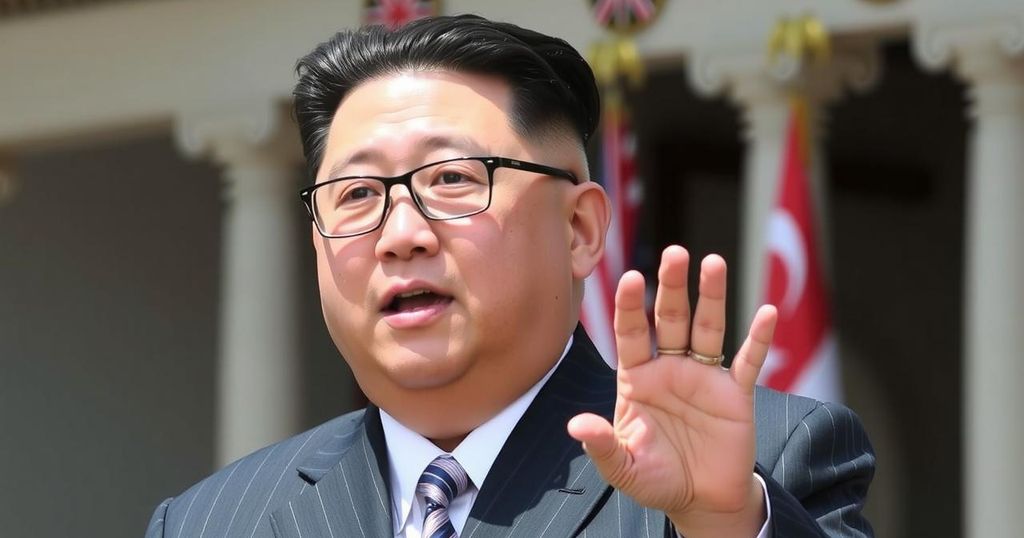Kim Jong Un Announces Rigorous Anti-U.S. Policy Ahead of Trump’s Presidency

North Korean leader Kim Jong Un has vowed to pursue the toughest anti-U.S. strategy before President Trump’s inauguration. He criticized the U.S. as reactionary, emphasized military advancements, and expressed skepticism about future diplomatic interactions with the Trump administration. North Korea’s military collaboration with Russia and increased weapons testing complicate efforts for denuclearization and exacerbate regional tensions.
North Korean leader Kim Jong Un has declared an intention to implement an exceptionally stringent anti-U.S. policy, as reported by the country’s state media, shortly before the inauguration of President Donald Trump. During a five-day plenary meeting held by the Workers’ Party, Kim characterized the United States as “the most reactionary state that regards anti-communism as its invariable state policy” and condemned the expanding security collaboration among the United States, South Korea, and Japan as a formation of a nuclear military bloc aimed at aggression. He asserted that North Korea will aggressively pursue the toughest counteraction against U.S. policies to safeguard its national interests and security.
Kim urged advancements in military capabilities through enhanced defense technologies and emphasized the mental resilience of North Korean military personnel. Despite previous dialogues between Trump and Kim, that included three meetings aimed at addressing North Korea’s nuclear ambitions, there appears to be skepticism amongst experts regarding the prospects for renewed diplomacy between the two leaders. Trump’s focus is projected to shift to ongoing conflicts such as those in Ukraine and the Middle East.
In light of North Korea’s increasing military cooperation with Russia, particularly its support for the ongoing war in Ukraine, the U.S. and South Korea have augmented their military exercises in response, which have drawn vehement criticism from Pyongyang. This backdrop signifies a deteriorating foundation for constructive engagement and hints at escalated tensions ahead.
The tensions between North Korea and the United States have fluctuated over the years, often intensifying with North Korea’s advancements in nuclear capabilities and missile testing. Kim Jong Un’s recent remarks indicate a determination to strengthen military defenses against perceived threats from the U.S. and its allies. The transition of power in Washington to President Trump could alter diplomatic dynamics, yet experts remain doubtful about the quick resumption of negotiations. The intertwining of North Korea’s military collaboration with Russia further complicates the geopolitical landscape, posing challenges to U.S. efforts for denuclearization and regional stability.
In summary, Kim Jong Un’s announcement of a stringent anti-U.S. policy signals a continuation of North Korea’s militaristic stance and its perception of external threats. While the potential for renewed dialogues with President Trump exists, current geopolitical realities, including North Korea’s cooperation with Russia and ongoing military drills by the U.S. and allies, suggest that diplomatic efforts may face significant hurdles. The situation remains fluid, with implications for international security and relations.
Original Source: apnews.com







